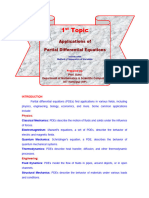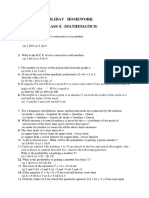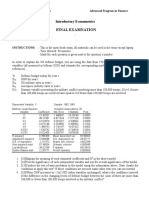0% found this document useful (0 votes)
57 views25 pagesCompiler Design Lab
The program takes in a context-free grammar as input and checks if it contains any left recursion. If left recursion is found, it eliminates it by introducing an auxiliary variable to separate the left recursive and non-left recursive parts of the production. It then prints the original grammar along with the grammar without left recursion.
Uploaded by
Dasmat HansdaCopyright
© © All Rights Reserved
We take content rights seriously. If you suspect this is your content, claim it here.
Available Formats
Download as PDF, TXT or read online on Scribd
0% found this document useful (0 votes)
57 views25 pagesCompiler Design Lab
The program takes in a context-free grammar as input and checks if it contains any left recursion. If left recursion is found, it eliminates it by introducing an auxiliary variable to separate the left recursive and non-left recursive parts of the production. It then prints the original grammar along with the grammar without left recursion.
Uploaded by
Dasmat HansdaCopyright
© © All Rights Reserved
We take content rights seriously. If you suspect this is your content, claim it here.
Available Formats
Download as PDF, TXT or read online on Scribd
/ 25





























